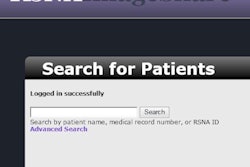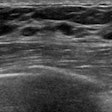The American College of Radiology (ACR) released a statement today opposing the imaging provisions in the deficit reduction plan presented this week by President Barack Obama.
"The imaging cuts in the administration's deficit reduction proposal would restrict patient access to care and may actually raise costs," the organization said in a statement. "The ACR urges the Joint Select Committee on Deficit Reduction to reject the administration's imaging recommendations and work with ACR and other imaging stakeholders to create policies that ensure safe, appropriate care; promote quality; and protect patient access."
Obama's plan includes changes to the imaging equipment utilization rate and a mandatory preauthorization program for advanced imaging services; the administration expects the plan to total $1.3 billion in imaging savings over 10 years.
However, according to the ACR, even the present equipment utilization rate of 75% is unrealistic. The organization cited a Radiology Business Management Association (RBMA) survey that showed the national average rate is only 54%. And a prior authorization program for advanced imaging in Medicare would have third-party gatekeepers rather than doctors and patients decide whether patients receive needed scans, according to the ACR.
The assertion that cuts are needed due to growth in imaging use is inaccurate, the ACR said. "Unlike most other Medicare services, spending on medical imaging is at roughly the same level as in 2004. Blind cost-cutting based on faulty assumptions can only hurt access to care and ultimately reduce the quality of care that Americans receive."
In other ACR news, the organization announced that it will host its first annual imaging informatics summit and radiation dose monitoring forum in November in Washington, DC. The forum will teach facilities how to monitor dose indices proactively, compare themselves to benchmarks, identify protocols that could be improved, and communicate dose information, the ACR said.



















